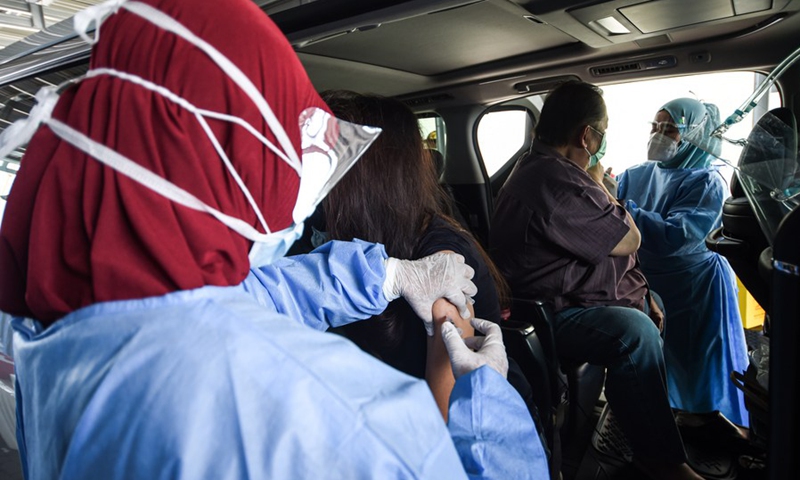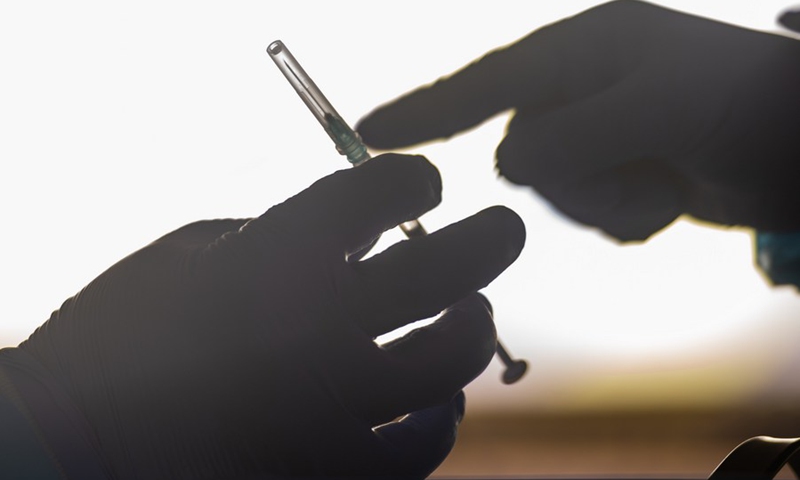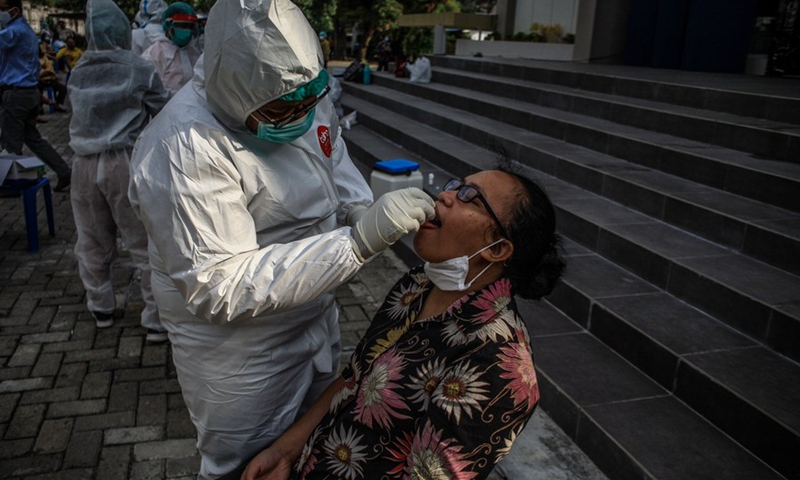Indonesia hit by new COVID-19 variant as pandemic drags on

People receive the COVID-19 vaccine during a drive-thru vaccination campaign for elderly people in Jakarta, Indonesia, March 3, 2021.(Photo: Xinhua)

A medical worker takes a syringe containing a shot of COVID-19 vaccine at the Poris Plawad public transport terminal in Tangerang, Indonesia, on March 4, 2021.(Photo: Xinhua)

A health worker takes a swab sample from a woman amid the COVID-19 outbreak in Medan, North Sumatra, Indonesia, Feb. 19, 2021.(Photo: Xinhua)
Indonesia was surprised by the detection of two cases of a new virus variant, right after one year of the COVID-19 outbreak in the country, while the coronavirus pandemic is still dragging on.
Deputy Minister of Health Dante Saksono Harbuwono has confirmed the two cases of the new COVID-19 variant in Indonesia.
"I received information that right after one year we found a B117 mutation in Indonesia," he told a press conference on Tuesday.
The country detected the coronavirus disease for the first time on March 2, 2020.
He said the two cases of the new variant were found on Monday evening, meaning Indonesia would face the pandemic with more difficulties.
Indonesia reported the two cases of the new variant in the Karawang district, West Java province. This variant, which was first reported in Britain, is said to be more contagious.
Two women with the initials M and A tested positive for the B117 coronavirus mutation. They were migrant workers in Saudi Arabia and arrived in Indonesia at the end of January 2021.
When arriving at Soekarno Hatta Airport in Banten province, M and A conducted a PCR (polymerase chain reaction) swab test and showed positive for COVID-19 and both of them carried out a 14-day quarantine in Jakarta. Following the second test that showed a negative result, they were allowed to return to Karawang.
West Java Governor Ridwan Kamil has also confirmed that a new variant of the coronavirus had been found in Karawang, and the provincial government is currently conducting contact tracing.
The governor has made coordination with universities to see whether the current health protocols to inhibit the further spread of COVID-19 would also be applicable to persons infected with the new variant.
Kamil also asked the people not to panic because anticipatory measures have been taken by the COVID-19 task force.
Indonesian President Joko Widodo also called on the people not to be nervous about detection of the virus variant.
"I call on all of you, ladies and gentlemen, not to worry about the finding of the two positive cases of B117," the president said in the Presidential Secretariat YouTube channel on Thursday night.
According to the head of state, the two people who were exposed to the new variant of the virus are now confirmed negative for COVID-19.
"And there is no research that shows that this new variant is more deadly," said the president, emphasizing that preventive efforts against the new variant have been carried out.
"For that, let us remain disciplined in running the health program strictly in line with the accelerated implementation of vaccinations," said the president.
The government ensures that the COVID-19 vaccine currently used in Indonesia is still effective against the B117 variant so that people are expected not to be too worried, and continue to apply health protocols, the government's spokesman for COVID-19 Wiku Adisasmito said.
Indonesia has been using the COVID-19 vaccine produced by China's Sinovac Biotech.
According to Harbuwono, in addition to Sinovac's vaccine, the government has also obtained commitments to procure vaccines from other pharmaceutical companies, namely AstraZeneca, Pfizer-BioNTech and Novavax.
All of those vaccines will be used in the country's national vaccination program.
